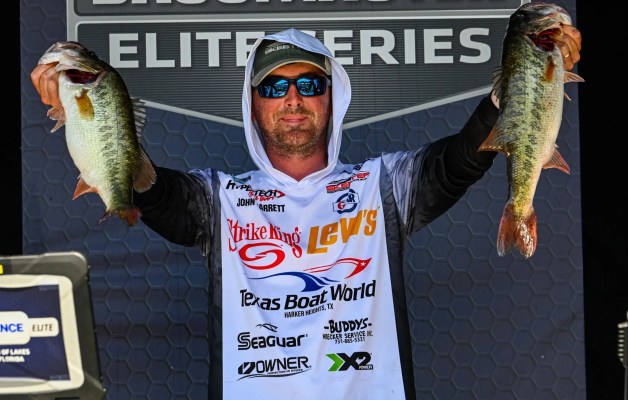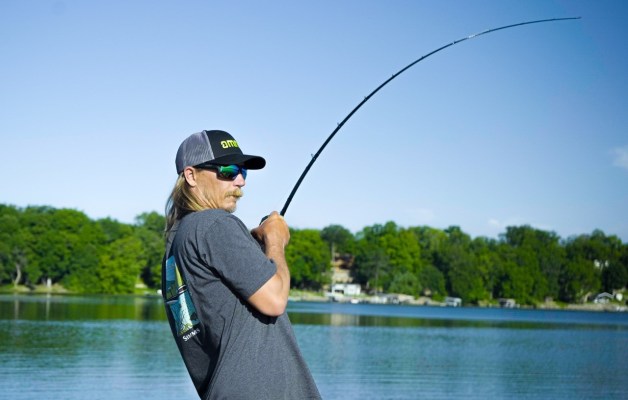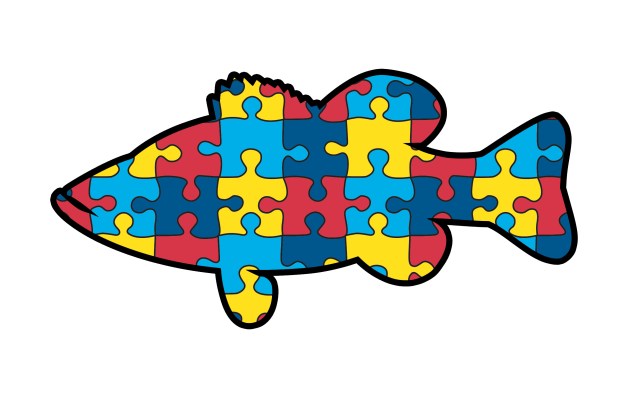You don’t have to be a genius to realize that bigger is better when you’re fishing a bass tournament. The guy who catches the biggest bass of an event gets a nice prize, and the angler whose overall catch averages the biggest generally wins the whole derby.
A few weeks ago, I set out to find out who was the best big bass angler in the Bassmaster Elite Series. After crunching a lot of numbers, I learned it was Todd Faircloth, who has caught the daily big bass in Elite events on 10 different occasions.
More recently, I wanted to find out which Elite anglers have averaged the biggest bass for each season and who was the career leader for averaging the heaviest bass.
I went into this research effort with some preconceived notions. I know that certain anglers have a reputation for catching lunkers — Todd Faircloth and Kelly Jordon, for example. But averaging the biggest bass for a season or career is something very different.
Catching the biggest bass of the day, tournament or season represents just a few casts made to the right places at the right time. It’s a great talent to have, and Todd Faircloth’s knack for getting it done has nothing to do with being lucky and everything to do with his game plan and superior execution.
Catching the largest bass on average for a season or career is different, however, and involves a different set of phenomenon. The innate or learned ability to catch larger bass is a very small of part of it … or at least I think that’s true.
Going in, I believed the biggest correlation between catching the largest average bass was catching the most bass. After studying the numbers, I can now confirm that.
Forget about the guys with the reputations for catching lunkers; if you want to guess who’s catching the biggest bass on average for a season or career, look to the anglers who are catching the most bass. The reason is simple and can be summed up in one word.
Culling.
If an angler is catching lots of keepers, he’s culling more than the guys who are not. The more you catch, the more you have the opportunity to cull, to chase after bigger bass and to upgrade your catch. If you catch just five bass or fewer, you can’t do that.
In Elite history, you need to average better than three pounds per bass brought to the scales in order to lead the league in heaviest average bass. Let’s call it the runs batted in of fishing. And like baseball RBIs, the table has to be set. In baseball, your RBI leaders hit third or fourth, behind the leadoff and number two hitters, who should be particularly adept at getting on base and into scoring position (second or third base).
Setting the table in tournament fishing means catching a limit. Once you have a limit, you can concentrate on upgrading. Once a baseball team has a runner or two on base, they can work on moving him around or blasting a three-run homer and breaking the game wide open.
The best season for heaviest average bass that anyone has posted in Elite history came in 2010. That’s when Skeet Reese’s average bass weighed a whopping 3.75 pounds. It was substantially bigger than his nearest challenger and more than a pound and a half bigger than that of the lowest ranked Elite angler of the season, whose average bass weighed just 2.23 pounds. Reese absolutely dominated that year but lost the Toyota Tundra Bassmaster Angler of the Year award to Kevin VanDam in the postseason.
The second best individual season for average bass was Steve Kennedy’s 3.56 in 2007. He barely edged Reese that year, who posted a third best single season weight of 3.55.
If you think these numbers are not important or indicative of performance, you should know that every AOY in the Elite era has ranked in the top five in this category, but one. Michael Iaconelli was 12th in 2006.
Here are the top 10 average bass seasons of the Elite era:
Angler Avg. Bass Year
Skeet Reese 3.7523 2010
Steve Kennedy 3.5576 2007
Skeet Reese 3.5488 2007
Kevin VanDam 3.4223 2007
Michael Iaconelli 3.4065 2009
Randy Howell 3.3913 2006
Kevin VanDam 3.3885 2009
Alton Jones 3.3633 2009
John Crews 3.3629 2010
Derek Remitz 3.3598 2007
Reese and VanDam have finished in the top 10 in this category five times each in seven seasons. Edwin Evers has made the top 10 four times. Eleven other anglers have been in the top 10 more than once.
On the tails side of this coin are the lowest average bass weights. Elite Series bass are trending smaller. The average bass for an individual tournament hasn’t topped three pounds since 2010. No angler averaged a three pounder for the 2011 season. Instead, it produced the lightest weights in Elite history.
Here are the five lowest single season average bass weights of the Elite era. The eight lowest weights were all from 2011. The next two were from 2012. If you look back at the list of heaviest bass averages, you’ll see that none came from 2011 or 2012. Simply put, the fisheries on the schedule in 2011 and 2012 just weren’t as productive as those from earlier years.
Angler Avg. Bass Year
Brent Broderick 1.7407 2011
Dave Smith 1.8383 2011
Scott Ashmore 1.9236 2011
Dennis Tietje 1.9342 2011
Ryan Said 1.9811 2011
In case you’re wondering, the average bass brought to the scales in an Elite event — that’s counting all 65 of them — weighs 2.77 pounds. That includes the individual tournament high of 4.91 at Falcon Lake in 2008 and a low of 1.78 from the Kissimmee Chain in 2007.
Next time we’ll take a look at who has caught the heaviest (and lightest) average bass over the course of the entire Elite Series. We’ll even make some mathematical adjustments that take into consideration that the quality and production of the Elite fisheries have changed from year to year.
Who do you think is best at bringing quality tournament bass to the scales?





